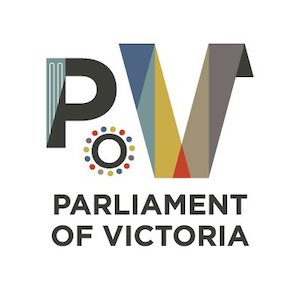The political scientist Hélène Landemore asks, If government is for the people, why can’t the people do the governing? By Nathan Heller, in The New Yorker, February 19, 2020 Imagine being a citizen of a diverse, wealthy, democratic nation filled with eager leaders. At least once a year—in autumn, say—it is your right and civic...Continue reading
The problem with knowing – and not knowing – a great deal about a complex policy matter, and how to overcome it
Lyn Carson, in The Mandarin 20th December 2019 If we know a great deal about something, we close our minds to alternative pathways, we share our knowledge with people who support our opinion (confirmation bias), and our creativity is constricted because we think we know what’s possible and dismiss anything that sounds unrealistic. Lyn Carson shoes how...Continue reading
Assessment of the 2016 Massachusetts Citizens’ Initiative Review Pilot on Question 4
Research report prepared concurrently for the Massachusetts CIR Pilot Project and the Democracy Fund John Gastil, Professor, Communication Arts & Sciences and Political Science Senior Scholar, McCourtney Institute for Democracy Pennsylvania State University; Katherine R. Knobloch, Assistant Professor, Dept. of Communication Studies Associate Director of the Center for Public Deliberation Colorado State University; A. Lee...Continue reading
Britons should learn to vote like the Ancient Greeks
Much has changed since democracy emerged 2,500 years ago. Women vote. We do not kill or exile politicians who mislead us. We choose representatives to make decisions on our behalf. Our civic responsibilities are hardly ever enforced. Occasionally, we make our way to a conveniently located polling station, cast our vote in private, and trust...Continue reading
Evidence Based Policy Research Project (2019)
For the 2020 Research Project click here. The November 2017 Symposium event convened by newDemocracy sought to challenge opinion leaders by asking them what practical testable improvements could be made to our democracy in order to improve public trust in how we take public decisions. It sought to move the discussion from one of complaint about...Continue reading
Submission to the Consultation on highly contentious bills for the NSW Parliament
This inquiry being held by the NSW Upper House’s Procedures Committee has two terms of reference: one on the usage of Green and White Papers as cornerstones of government policy development, and the second on the applicability for using deliberative processes to assist the parliament when bills are highly contentious. Those interested in this work...Continue reading
Submission to the Senate Inquiry into Nationhood, National Identity and Democracy
Submission to the Senate Inquiry into Nationhood, National Identity and Democracy If you only read (and perhaps share) one government discussion paper this year, then make it this one. In a concise 8pg document the Federal Senate has outlined global threats to democracy across the world and its scope to affect Australia. This is exactly...Continue reading
Submission to the Inquiry into the Administration of the 2019 NSW State Election
After each election (state and federal) a joint committee holds an inquiry into its conduct as an opportunity for any concerns to be aired, and we take this opportunity inject opportunities for democratic innovation. This paper advocates five concepts – That everyday people should be a central part of the election review due to the...Continue reading
Submission to the Inquiry into the conduct of the 2018 Victorian State Election
We thank the Electoral Matters Committee for the invitation to make a submission. Around the world, confidence in representative democracy is under siege. Citizens are moving beyond cynicism to disengagement, and the potential for further decline is clear. Viewed more positively, it is clear that a jurisdiction that successfully finds a way to counter this...Continue reading
Deliberative democracy is just what politics needs
Measures such as citizens assemblies can combat rising polarisation The editorial board, August 11, 2019 Here is an inconvenient fact for those who stand up for liberal democracy against its powerful detractors: it works best where it is least needed. As societies grow more polarised, democratic agreement has never been so much in demand. Yet...







